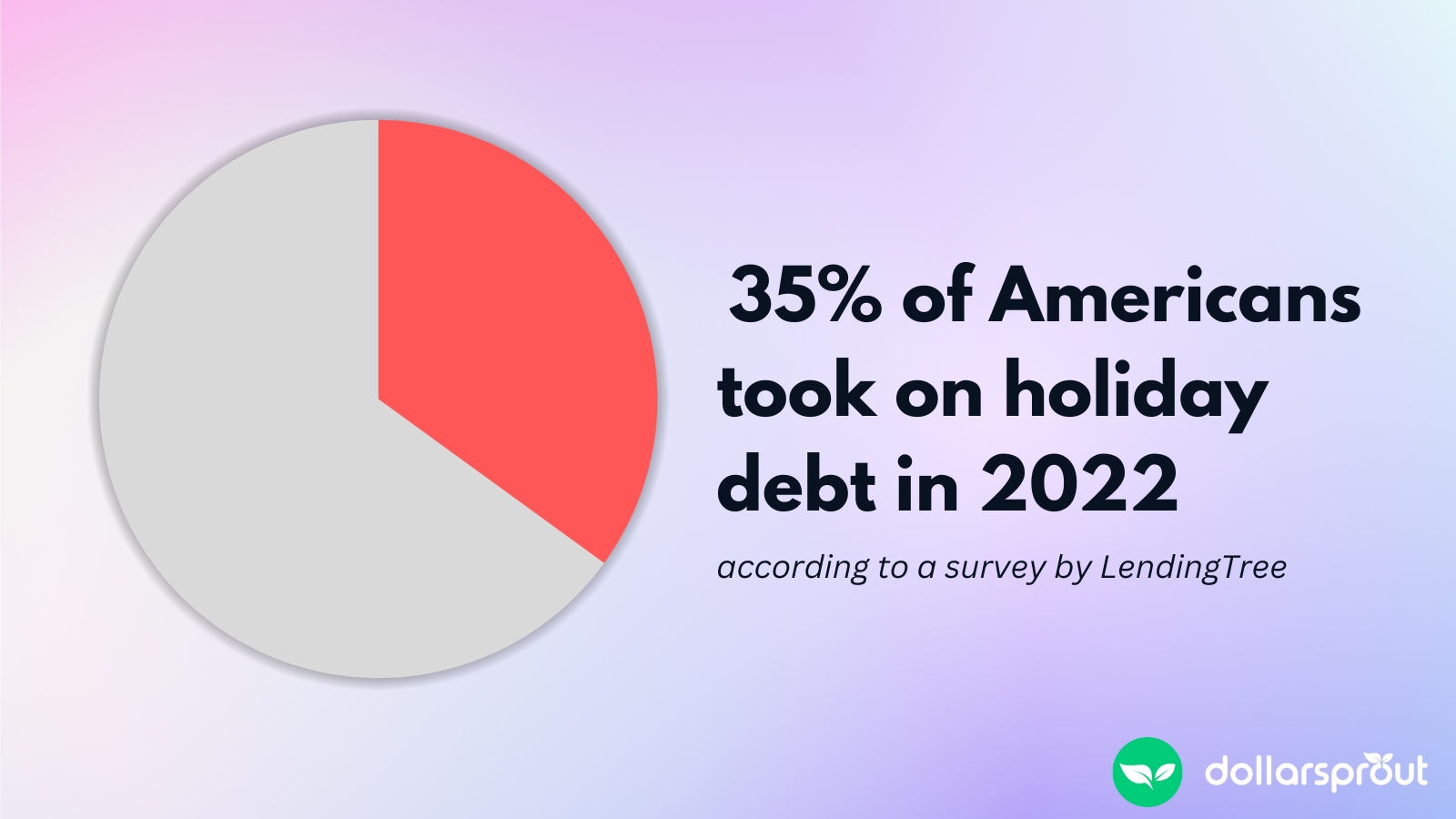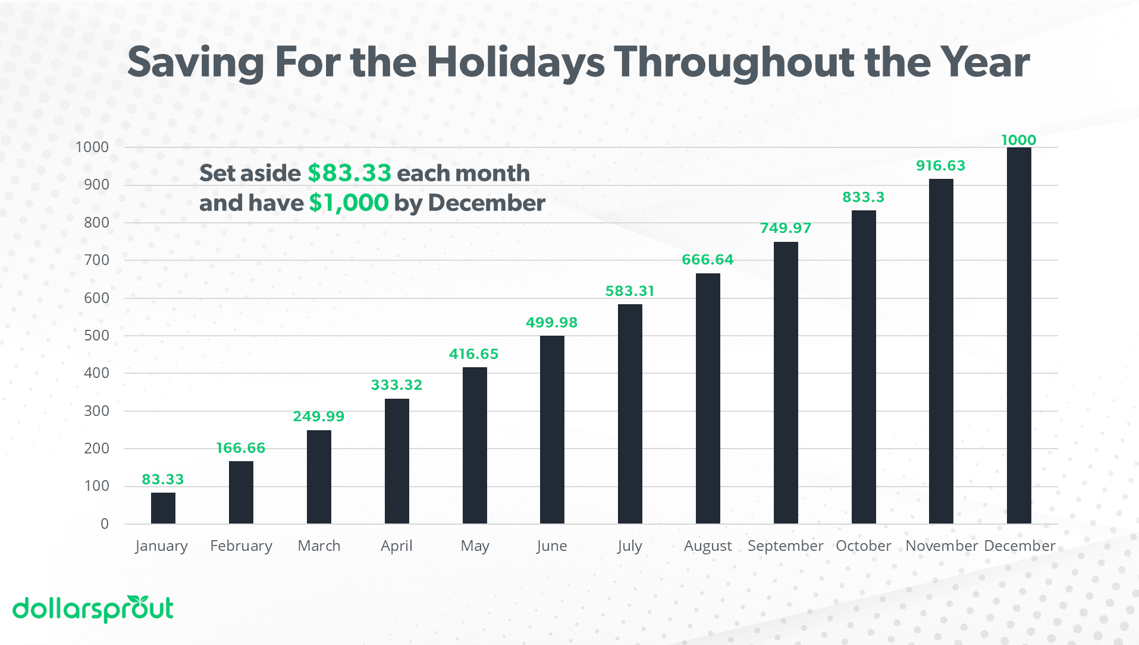5 Financial Mistakes to Avoid This Holiday Season
Our readers always come first
The content on DollarSprout includes links to our advertising partners. When you read our content and click on one of our partners’ links, and then decide to complete an offer — whether it’s downloading an app, opening an account, or some other action — we may earn a commission from that advertiser, at no extra cost to you.
Our ultimate goal is to educate and inform, not lure you into signing up for certain offers. Compensation from our partners may impact what products we cover and where they appear on the site, but does not have any impact on the objectivity of our reviews or advice.
Studies show that the holidays are the number one time of year people feel pressured to overspend. Here are several commonly made mistakes to avoid.

As another holiday shopping season rolls around, many Americans are making changes to how they approach this year’s shopping. High inflation has had its grip on the economy for the past few years, leaving many people financially overwhelmed.
Even with so many planning holiday budget cuts this year, between gifts, office parties, travel, and other obligations that come up around this time, it’s easy to let your spending run amok.
Here are five common money mistakes to avoid this holiday season so you don’t start 2025 with any financial regrets.
1. Not setting a maximum gift budget
Have you ever started shopping for the first couple of people on your list, only to realize after buying the first few gifts that…this might cost a lot more than you expected? We’ve all been there.
A $100 gift here, a $50 gift there, tack on a couple of $25 gifts, and just like that you’ve already spent $200. (Oh, and you still have over 10 people on your list to buy gifts for.) And of course, some of the closest people to you on your list will likely be receiving more than one gift from you. It all adds up — fast.
Solution
1. Before buying any gifts, make a list of everyone that you plan to buy presents for.
2. Set a maximum Christmas budget for your total gift-giving. While there is no “right” answer here, try to use your best judgment.
3. From that total, start roughly allocating a budget to each individual person. It doesn’t need to be perfect; this is meant to be a ballpark figure.
4. Start researching gifts online for each person that falls within their price ranges.
2. Using loans or credit cards to buy gifts
If you haven’t saved anything for your holiday shopping — or if you haven’t been able to save — it may be tempting to take out a personal loan or charge your shopping on credit cards to get you through the season.
While this is sometimes unavoidable, often consumers are too quick to take on this extra financial burden. Using a personal loan, cash advance, payday loan, or racking up more credit card debt can be a costly mistake.
Between exorbitantly high interest rates, fees, and a solid hit to your credit score, you should make a serious effort to exhaust all other money-saving options before taking on more debt for the holidays.
Solution
1. Get creative with your gifts. Handmade gifts, “coupon” vouchers for fun (and free) experiences together, and other sentimental gift ideas can mean much more to someone than a gift you buy from a store.
2. If you do take on debt, make a goal to pay it all off by the end of January. The longer you let your debt linger, the more interest charges will accrue on your balance.
3. Plan ahead so this doesn’t happen again next year (see below).
3. Not saving up for gifts throughout the year
Credit Karma reported in a 2022 survey that 36% of Americans saved zero money to purchase Christmas gifts, and that of those, 69% planned to take on debt to cover the cost of the holiday season.[2]
To alleviate some of that stress, consider making holiday spending a regular line item in your budget for all 12 months of the year. That means setting aside a certain amount of money each month that is specifically meant to be used for year-end holiday spending.
For example, let’s say you want to spend $1,000 on gifts next year. Instead of scrambling to make it work once December comes around, set $83.33 aside each month (preferably somewhere you won’t touch it, like a sinking fund specifically for holiday spending).
Solution
1. Determine how much you plan on spending during the holidays for next year.
2. Divide by 12 months to determine how much you need to save each month throughout the year.
3. Set up an automatic monthly draft from your checking account to the savings or money market you are holding your “spending fund” in.
4. Splurging a little too much on yourself
According to a 2020 Deloitte retail survey, 51% of Americans reported that they end up buying themselves gifts over the holidays.[3] If you are out shopping and see something you like, it can be tough to say no to yourself.
After spending your hard-earned money on friends and loved ones, it’s easy to convince ourselves that we “deserve” a little something special for ourselves. Be careful, though. A simple misstep like this one can easily lead to more self-indulgent spending and can bust even the most well-planned holiday budget.
Solution
1. Practice the “Seven Day Rule”. If you see something you like, don’t make a purchasing decision for at least seven days. In most cases, you’ll find that your desire for that thing has gone away.
2. If you still want it, make an honest assessment if you can afford it with your current budget (and not take money from your separate gift shopping funds).
3. If not, set up a savings plan to accumulate the funds you need.
5. Jumping at every great “deal” you see
It seems to happen every time we step outside the door (or open up the laptop).
A sale.
Maybe it’s a 25% off sign for a cute handbag or a BOGO deal at Starbucks. It’s always something, and we often feel like we just can’t pass it up. While everyone loves a good bargain, companies are very skilled at taking advantage of human psychology to pressure us to buy things we don’t need — and sometimes buy things don’t even want.
Solution
Before you buy something that is on sale, stop and ask yourself the following:
1. If this wasn’t on sale, would I still want it?
2. Where will I put it? (Or when will I wear it, use it, etc.?)
3. How will I pay for it?
4. Is there a better way to use the money I’m about to spend on this?
Related: 5 Signs You May Have a Shopping Addiction
Remember Your Long-Term Financial Goals
The holidays shouldn’t be about money. There are far more important things to focus on, like spending time with family and friends and creating memories that will last for years.
The biggest gift you can offer anyone is your love, time, and friendship. No material gifts are worth paying interest for, and they certainly aren’t worth derailing your long-term financial goals.







